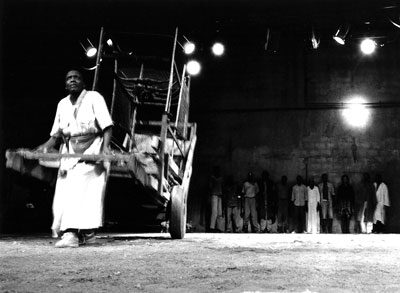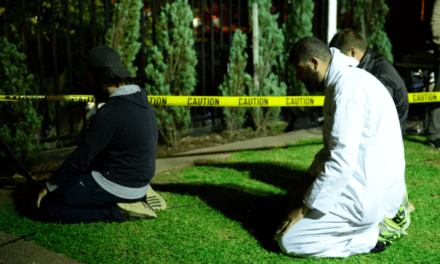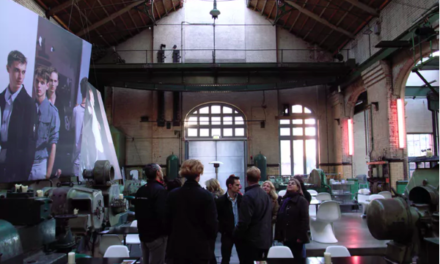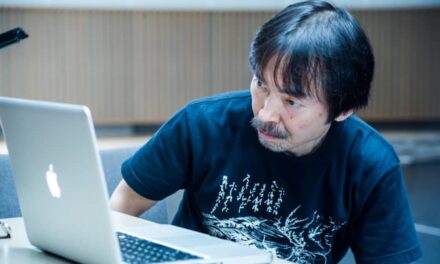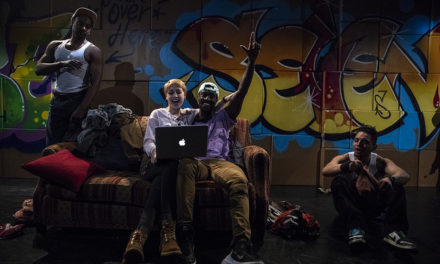Rose Mbowa is an indubitable doyenne in Uganda’s theatre. At Makerere University, an ivy league of sorts on the continent, where Mbowa spent most of her life, her name is often invoked in lecture theatres, staff estates and among the faculty or senate. Beyond the Hill, (Kampala sits on hills; Makerere being one of them) or more appropriately, beyond seas, Rose Mbowa is revered in equally full doses as an astute actress and playmaker, a fervent feminist and brilliant academic. Mark you, Rose is long gone: the flower was plucked from the garden of the living on 11th February 1999, but, wait a minute – how come her theatrical fragrance has stayed with us?
The varied assemblage for the Rose Mbowa Memorial Lecture at the National Theatre on Wednesday 19th February 2020 was a sheer attestation to the enduring influence Mbowa had on the cultural scene in Uganda and elsewhere; and that alone would answer any doubtful Thomas. The keynote address was presented by Dr. Patrick Mangeni, an associate professor of drama and applied theatre and the Dean of the School of Liberal and Performing Arts at Makerere. To discuss his address was actress and filmmaker Irene Kulabako. Both Mangeni and Kulabako were Mbowa’s students. Titled ‘Theatre and Development in Uganda: the Legacy of Rose Mbowa’, the lecture was not only a moment of retrospection of this great mind but also a time to envision theatre, the arts, and development in the light of her work and artistic vision.
Mbowa’s Family and Education
But who was Rose Mbowa? It is a question that Ugandan theatre producer Andrew Ssebaggala kept on asking himself when he was a freshman at Makerere. He had heard the name Mbowa leaping off every lip of the faculty member. In his innocence, Ssebaggala had thought Mbowa was one of those teachers who had gone abroad for further studies and would come back to teach them anyway. Ssebaggala should have kept a notebook for that purpose (poor student!), only to learn Mbowa had died not long after they joined university. Ssebaggala would then be catapulted to a worthwhile journey of knowing more about this incredible servant of theatre.
Rose Mbowa’s journey began on the 14th day of January in 1943. Her parents were Kasole Mbowa and Eva Nyinabintu Mbowa of Makindye, a Kampala suburb. It is here that Rose now lies in her garden of eternity, next to her parents.
The young Mbowa went to Gayaza High School, a missionary establishment in Uganda famed for its excellent secondary education. From Gayaza (particularly from her headmistress, Joan Cox) Mbowa partly picked her humanitarian values; values that would later play a central role in her work, for Mbowa’s work, in the words of Augusto Boal, “rehumanized the dehumanized”.
Her next academic destination would be none other than Makerere, and from 1964 to 1967 she was at the Hill studying English Literature. At Makerere, Mbowa shared classes with Timothy Wangusa (later poet, novelist, and professor of literature) and John Ruganda (another literary and theatrical giant in the East African region). In the space of the nearly four years of her university education at Makerere, Mbowa sat at the feet of two Davids: Cook and Rubadiri. The latter, a Malawian, had left his ambassadorial position in the UN around 1966 when he fell out with President Kamuzu Banda of Malawi and returned to teach at Makerere. I don’t know how Tim (Wangusa) missed ‘shooting his shot’ at the rose in his class, (pun intended, Professor!) but what I know is that Prof. David Rubadiri met Rose Mbowa around this time. Suffice to say that David Mbowa Rubadiri (born in 1970) is the beautiful testament of their relationship.
A year earlier, Rose Mbowa had made it to the UK for a Master of Arts in Drama and Theatre Studies at the University of Leeds. She was under the professorship of Martin Banham, and once again she came into contact with Doreen Newryn. Doreen and her husband, Walter, a professor of Economics, had been teaching at Makerere before settling in Leeds. Newryn’s home became a second home to the young African student with her little son braving physical and social winters in England, and Rose could have been influenced by that kind gesture in her career, for people talk of Mbowa’s home in Makerere as an extended classroom and rehearsal space.
Mbowa the Academic
Mbowa started her teaching career as a tutorial assistant at the Department of Literature. When the Department of Music, Dance, and Drama (MDD) became independent from Literature in 1971, Mbowa’s next designation was at MDD: starting as a lecturer, and rising fiercely through academic ranks. By the time she passed on, she had risen to the position of associate professor, not a slight achievement even today. She was the Head of the Department too.
For a department she found running just a diploma program, she introduced three other degree programs: Music, Dance, and Drama. Her students describe her as a relentless policy fighter in the University senate. When the walls of the university were too high for many a theatre practitioner due to stringent entry requirements, she negotiated with university administrators to allow artists who were already in the field but lacked relevant academic qualifications to enroll in the diploma course through mature age entry. One of the beneficiaries of this scheme is artist-turned-MP, Hon. Kato Lubwama. Mbowa actually allowed Lubwama to write his play in Luganda as a fulfillment of his diploma requirement when (up to the present day) English remains a medium of instruction at university (quite colonial, right?) In those days, Kato’s English sounded like a code mix of Chinese, Greek and Sign Language, all ‘spoken inside-out’. But Mbowa saw potential in everyone who came her way regardless of their social background, tribe, religion or political inclination. Such adaptability and perceptiveness of the condition of omuntu wawansi (common man) was quintessentially Mbowan. She thus redefined university education and opened the windows of the Ivory Tower, allowing her students to look out to the world, or better still artists in the field to look into academics. ‘You did not need a university paper to teach a traditional dance or a thumb piano at her department. You just needed mastery of the art’, recalls Mr. Blasio Sempeke, a percussionist.
Dr. Jessica Kahwa, a senior lecturer at the department who was Mbowa’s masters student speaks of her with ‘altar-like’ awe. Her networking skills still dazzle Kahwa: ‘She invited the crème de la crème in the industry at the time. She brought people like playwright John Ruganda and professors, Austin Bukenya and Eckhard Breitinger to teach us.’

Some of Rose Mbowa’s former students and speakers at the Rose Mbowa Memorial Lecture at The National Theatre in Kampala in February this year.
Mbowa’s own scholarly work gives a seminal study of theatre in Uganda. ‘Luganda Theatre and Its Audiences’, published in Eckhard Breitinger’s Uganda: the Cultural Landscape is certainly one of her most-sought articles. She presented several papers on the annual African Literature Conference at the University of Bayreuth in Germany in the early 1990s.
Yet it was not all roses for Rose. She was working with meager resources ‘in the institution and in her house,’ or so Mangeni confided in the audience at the Memorial. But as you know, a rose flower rests under thorns but never loses its beauty or scent, Rose sacrificed her life as a single mother and carried the enormity of her multifarious tasks on her bare shoulders.
Mbowa the Artist
In the realm of arts, Rose Mbowa was a poet, dancer, actress playwright, director, singer – all rolled in one. It was at Gayaza, an all-girls school when Rose played Salongo (father of twins) in Salongo and Nalongo that her teachers realized she had a special calling.
She would have read drama for her first degree had it been taught at Makerere at that time. Luckily for her, English Literature meant she would act plays they were studying. She, for instance, acted Ophelia, a leading female role in Shakespeare’s Hamlet, produced by David Rubadiri himself in the University Main Hall in 1966. She also acted in Anton Checkov’s The Proposal playing the girl, Nataliya. In the same production, Timothy Wangusa took on Chubukov while Nuwa Sentongo played Lomov, the man who comes to propose to the girl. (Ah, Prof. Wangusa someone else lost a chance here!)
When the Makerere Free Travelling Theatre and its itinerant performances started in 1965, Mbowa was one of the actresses that went performing around the region in the first and second batch. Wangusa who was in the 1966 batch has lived to remember Mbowa’s miming of ‘The Rain Came’, a short story by Kenyan author Grace Ogot. ‘Mbowa believed in adapting art into other forms. If she came back today,’ Wangusa says, ‘she would be pleased with Peter Kagayi and Harriet Anena’s efforts of turning poetry into theatre performances.’
If you consider Mbowa’s later theatre activities, Wangusa’s assertion is to be believed. she employed a variety of art forms in her plays: mime, dance, folklore, and music. Her most known play, Mother Uganda and Her Children (recently retrieved from a video recording, transcribed and published in African Theatre: Six Plays from East and West Africa) is an exemplar of her style.
Her directing style was hugely collaborative and democratic, relying so much on the team. But Mbowa ensured she had the final say. Mangeni says Mbowa ‘selected casts meticulously, even ruthlessly, discarding actors if they did not come up to the standard, or even if they did not physically fit the aesthetic image she sought.’
Mbowa approached her work with such artistic rigor and versatility. Her acting was almost unrivaled. She made a name around the world when she took the titular role in Maama Nalukalala n’Ezadde Lye, a Luganda translation of Bertort Brecht’s Mother Courage and Her Children and the first Brechtian translation in an African language. The play was performed in Uganda, at the Royal Court in the UK and at the Kennedy Center in Washington. In all places, Mbowa received a standing ovation. ‘Her performance was memorable – sexy, robustly funny yet passionate in its realism, its assertion of humanity and its critique of war,’ notes The Guardian. Prof. Austin Bukenya, a theatre arts guru, who worked with Rose Mbowa from the 1970s, holds the same view: I watched Rose Mbowa’s performance of Medea and I was fascinated. It surpassed the performance (of another Medea) I had seen in England. She was a very naturalized kind of performer. She took her role from so deep a place that when it came out, it was so genuine’.
Mbowa the Feminist
For someone who did not subscribe to the gender dichotomies, it is rather ambiguous to call her a feminist. But Rose Mbowa was. A liberal one though. Women’s issues occupied a special place in her heart and became an overriding subject in her work.
In one of her plays, Nalumansi: Mother of Lukabwe, for instance, the heroine stands up to challenge her illiterate, chauvinistic husband, and will only submit to him when he becomes enlightened. To Mbowa, illiteracy is not just the inability to read and write but the failure to understand those down the social strata. Mbowa revisits her feminist theme in Mine by Right. Commissioned by the Uganda Law Society to mark the International Women’s Day, the play is a wake-up call for women to fight for their rights.
The women’s cause saw her compose the National Women’s Anthem and support women’s social and economic groups like the Magere Women’s Co-operative. Such an impact shows that here was an artist with a revolution to espouse at a time when women’s rights in Africa were just conference rags to wipe men’s boots.
Mbowa and Theatre for Development
Rose Mbowa and Theatre for Development were perforce one – cut off the same cloth.
But Theatre for Development had been here before. Pre-colonial African theatre had been built on the same model of improving people and livelihoods. Little wonder then that colonialists did not find it hard to adapt it in their bid of teaching sanitation or farming methods to the colonized (not a good label if you ask me!) The ugly effects of the second world, after all, had left the Western models of theatre and development hanging in the balance. There was a need to use art to better the lives of societies.
Theatre for development thus became popular in Africa, particularly in the period following independence, borrowing a lot from the ideas of Theatre of the Oppressed theorist Augusto Boal and Paulo Freire. Laedza Batanani in Botswana, the Chikwakwa Travelling Theatre of Zambia and the Makerere Free Travelling Theatre (in which Rose Mbowa had participated) were some of the Theatre for Development experiments that sprang up in post-colonial Africa. It is those influences that drew Mbowa’s practice towards using Theatre for Development as a form of applied theatre.
Working with her students at Makerere and later with the Ngaali Ensemble, Mbowa embarked on a serious mission of using theatre to tackle social issues. They would go to communities, live with the locals, learn their cultures, including the local languages, as they investigate their problems. A piece of art would later be created out of their experiences. As Mangeni indicates, ‘She tended towards drawing from the African traditional form of expression and art and then applied them in a way that sought to contest and interrogate power or seek to empower those that were on the margin of society’.
It is upon that backdrop that her play Mother Uganda and Her Children was commissioned by the Government of Uganda in 1987 in rehabilitating and rebuilding the country after a series of civil wars. Funded by the state, Mbowa and group traversed the country and abroad to convince nationals and foreign investors that Uganda was now a safe place. The project was a huge success until the failure of living to their commitment on the side of Government, intrigue, and divisions within the group became the straw that broke the camel’s back.
The Future
Now that Rose Mbowa is no longer with us, what next? It is a question that assailed the audience that attended the Rose Mbowa Memorial Lecture. It was a question that left us glued to our seats, moments long after the moderator, Andrew Ssebaggala ended the session. It is a question that would disturb any theatre artist, anywhere in the world. It is a question that haunts me as I write this. Why would it? Rose Mbowa touched many people in many ways – in academia, politics, theatre, radio, and television – generations and generations of people around the world. Ask me for a rose that refuses to wither, and I will tell you about Rose Mbowa.
This article was originally posted at theafricantheatremagazine.com on March 7, 2020, and has been reposted with permission. To read the original article, click here.
This post was written by the author in their personal capacity.The opinions expressed in this article are the author’s own and do not reflect the view of The Theatre Times, their staff or collaborators.
This post was written by Ian Kiyingi Muddu.
The views expressed here belong to the author and do not necessarily reflect our views and opinions.

